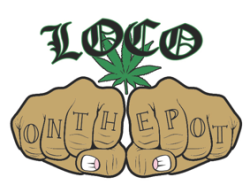
Ever hear of Fear Of Missing Out syndrome, or FOMO? It’s the fear of missing out on good times, a fear that is only made worse for people in our time of extreme information sharing. If some guy sees a picture on Instagram of his buddies having fun without him and then he gets all anxious and sad because he’s missing the fun, that’s FOMO. The cool kids are out being cool, and this dude got left behind. (Help for FOMO sufferers is on Oprah.com. It’s totally normal.)
FOMO. Washington and Colorado legalized marijuana first, and some Californians are feeling maybe a little jealous and left behind. The FOMO of such Californians is only made worse with all of the hype around big weed industry investment potential coming together in the lands of legalization. Chris Roberts captures Cali’s FOMO well in his Sept. 18 SF Weekly cover story, “Growing Conditions: Marijuana Makes the Leap to Big Business. Will California follow?”
He lays out this really sad story, how California was the first medical marijuana state, but clear regulations never really came together — a total fail. People know the saga well — manipulative, inconsistent feds and martyred weed heroes; booming markets and stagnant politics; Prop (Flop?) 19; pot shops opening, raids, pot shops closing; failed (even recent) attempts at statewide regulation; the patchwork of different city and county regulations.
And now, Colorado and Washington beat California to legalization, and then the feds say “make your laws strong and clear and we will let you do your thing.” Now Washingtonians and Coloradans get to be the innovators of legalization, they get to attract and bring in the big money and big business. It’s so unfair. California is supposed to be the marijuana trendsetter, dammit.
FOMO’s a bitch.
There’s a gloat factor too. Some dare to mock Humboldt, the nation’s home of bountiful and potent cannabis, in the midst of this upheaval. Example: The “Medical Strain of the Month” in the July 2013 High Times is Trainwreck, a strain is said to originate in Arcata. The author, David Bienstock, talks about how Humboldt is part of the “famed Emerald Triangle,” how it was Humboldt’s outlaw back-to-the-landers that bred the first modern hybrids. And yes, Trainwreck is from Humboldt County, but this strain is a relic of grander times past.
Now, according to Bienstock, word is that the “botanical geniuses” of the weed world are migrating from Northern California to Washington and Colorado to do “some serious research and development.” One is left to assume that future amazing strains of weed will come from those states now, not from here. Bienstock offers consolation: Emerald Triangle growers “may not be the cutting edge of the bud-breeding universe anymore, since their work remains underground and largely uncredited, but they’ll always be its heart and soul.”
To the FOMO-inclined, that reads like “Sorry Humboldt, you’re time is up. We’ll remember you fondly, but weed is going the way of Denver and Seattle. Oh, and thanks for the Trainwreck.” (Note: I can’t find this particular HT Medical Strain of the Month review online, else I’d link to it.) Kym Kemp discusses a more direct shit-talking here: “Ouch! The Atlantic Magazine Talks Humboldt Pot – Badly.”
Alas, the sinking ship of Humboldt, the pesticides, the water theft, the people talking shit. Where is reason, sanity, direction?
Here’s some. Kyle Keegan, co-author of the “Northern California Farmer’s Guide to Best Management Practices,” threw out some reflections and some reason in his guest editorial on LoCO last week.
He compares the “mono-economy” of Humboldt’s cannabis boom to the Gold Rush and logging industries, and then he gives a call to action to “all those who feel rooted and connected to the land and people of the North Coast to invest our region’s current mono-cultural prosperity into creating a future of economic diversity and resilience.”
Right … investment. What exactly are “rooted and connected” people supposed to invest in? Keegan does not say. And even when/if legalization happens, do rooted and connected locals have enough money and political clout to push Humboldt into the “Napa of Weed” or some version of a functional, niche marijuana farming community? If that’s even what he means.
It seems possible. Marijuana business is pretty established here. Ancillary businesses are established. And since big-time investors are riding the wave of legalization elsewhere, for now, perhaps local farmers can invest in themselves, in getting their land up to code, in getting water storage and roads built.
Perhaps local interests can invest their hoards of weed cash in solid economical analyses of the region and its marijuana-producing, commercial ag potential, or in developing a plan for Humboldt’s niche farming community complete with master marijuana gardeners.
Anyway, maybe it’s a good thing weed isn’t legal here yet. Now Californians get to sit back and see how things play out in the new weed frontier of WA and CO. There’s more time to debate and develop weed infrastructure. And big money will likely still be around when California eventually gets its own well-regulated market for legal weed. No more FOMO.
CLICK TO MANAGE